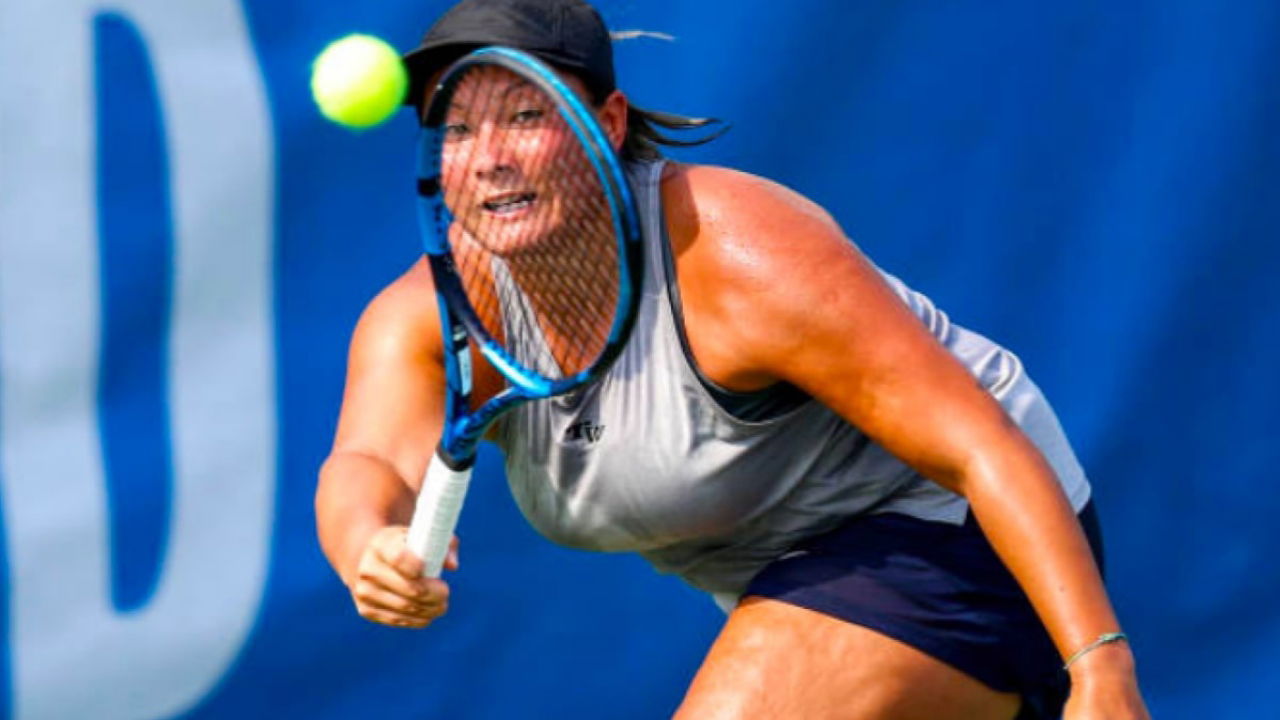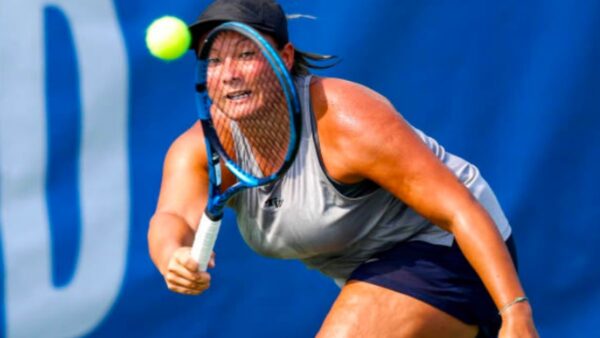Tara Moore Blasts ITIA for ‘Broken’ Anti-Doping System After Four-Year Sanction
32-year-old British tennis player Tara Moore was hit with a four-year sanction earlier this month.

Tara Moore (via Punto de Break)
🔍 Explore this post with:
Tara Moore, a British tennis player, has received a four-year ban from the sport. The ruling came after the Court of Arbitration for Sport (CAS) sided with the International Tennis Integrity Agency (ITIA), which appealed a previous decision that had cleared her of an anti-doping violation. Moore was initially suspended in June 2022 after testing positive for the banned anabolic steroids nandrolone and boldenone.
Moore has always denied knowingly using any banned substances. After the latest ruling, she posted a statement on X, where she harshly criticized the ITIA and the tennis anti-doping system, calling it deeply flawed and unjust.
She had previously been cleared by an independent tribunal, which accepted her explanation that contaminated meat was the likely source of the banned substances. Moore spent 19 months under provisional suspension before being initially exonerated. Moore said in a statement on X:
To be innocent and to have to prove this is an incredibly exhausting process. First, you are trying to figure out what all these things are. Second, you are trying to figure out how and why these things enter your system. If you are innocent, you don’t know it immediately…But even at that moment, you are supposedly guilty and have to fight for your life against someone who has much more money and resources than you.
However, the ITIA appealed the “no fault or negligence” ruling concerning nandrolone. CAS ultimately agreed with the ITIA, stating that the original decision did not meet the required legal standards. The court found sufficient grounds to overturn the earlier judgment and enforce the four-year ban. She added:
The antidoping system is broken; I am the best proof of that. We have to fix it. Not for me, because it is already too late, but for future players who may find themselves in this unfortunate situation. I will have much more to say when the time comes.
Statement: pic.twitter.com/FrTaOeDlQK
— Tara Moore (@TaraMoore92) July 20, 2025
Moore also filed a cross-appeal in hopes of dismissing the ITIA’s case or at least clearing her of fault. CAS ruled her appeal inadmissible. The ban officially began on Tuesday, but the time she already served under provisional suspension will be credited toward the total period.
Jannik Sinner and Iga Swiatek doping scandals resurface after Wimbledon
The doping cases involving Jannik Sinner and Iga Swiatek remain a major topic in tennis. Recent comments from former Wimbledon champion Pat Cash reignited the discussion, leading to strong reactions online. Both players tested positive for banned substances last year and received relatively short suspensions, which many considered controversial.

Swiatek accepted a one-month ban in late 2024 after proving that a sleep aid she had used was contaminated. Sinner’s situation was more complicated. He claimed contamination occurred after a team member applied a steroid-containing spray to a cut, then gave him a massage. His legal team supported this explanation, and while he faced a possible year-long suspension, he ultimately agreed to a three-month ban through a deal with WADA.
Sinner’s short suspension meant he did not miss any Grand Slam events. After falling short against Alcaraz in the French Open final, he went on to win Wimbledon, defeating Alcaraz in a rematch. These high-profile victories have fueled debate over whether the players should have been competing at all during this time.
While some fans feel it’s time to move past the controversy, others remain critical. Supporters of players like Novak Djokovic, Carlos Alcaraz, and Aryna Sabalenka argue that the cases raise serious concerns about fairness. The decisions by ITIA and WADA, though finalized, have left lasting questions in the tennis community.
Jannik Sinner’s doping scandal explained
Jannik Sinner and Carlos Alcaraz clashed in a dramatic Wimbledon men’s singles final on July 13. Sinner, ranked world No. 1, faced world No. 2 Alcaraz in a match filled with intensity. Sinner, already a three-time Grand Slam champion, secured his fourth major title. This victory marked his first since serving a three-month doping ban earlier in the year, drawing renewed attention to the case.

In March 2024, Sinner tested positive twice for clostebol, a banned anabolic steroid. The International Tennis Integrity Agency (ITIA) determined that the substance entered his system during a massage by his physiotherapist, Giacomo Naldi.
An independent tribunal accepted that Sinner was contaminated unintentionally and ruled that he bore no fault or negligence. However, controversy lingered, especially after WADA appealed the ruling.
According to reports, Sinner’s legal team and WADA reached a resolution through a private agreement. This deal led to accusations of favoritism and raised concerns among fellow players about fairness in anti-doping decisions. Although WADA initially pursued a one- to two-year ban, the agreement limited Sinner’s suspension to three months. Some critics argued that the case undermined trust in clean competition.
The New York Times and BBC both noted that the appeal from WADA was never formally heard, as the agreement closed the case. While Sinner was cleared of wrongdoing by the tribunal, the handling of the situation remains controversial.
Also Read: (Video) Andre Agassi Sparks Coaching Rumors After Being Spotted with Holger Rune in Washington







